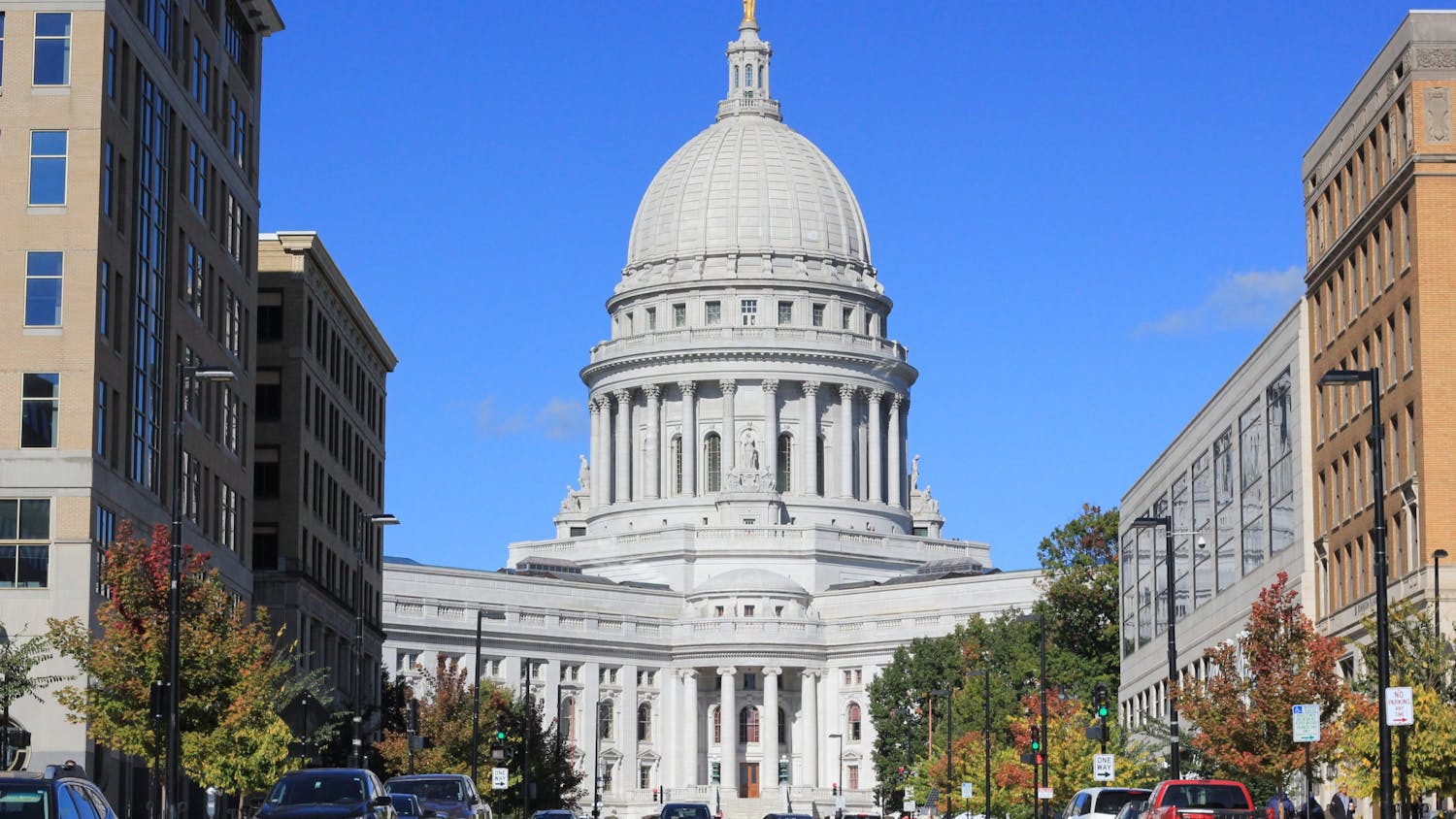Thanks to greater collaboration between the Wisconsin Book Festival and various UW-Madison departments, faculty and publishers, this year's Wisconsin Book Festival, which ran Wednesday through Sunday, featured a diverse group of speakers and events. ??
Before this year, watching a good movie may not have seemed like a natural part of attending a book festival-but thanks to an effort between the Wisconsin Book Festival and the CineFest Nuestra America annual film festival, book lovers watched more films and film lovers read more books.
The university's Latin- American, Caribbean and Iberian Studies Program hosted CineFest.
\We saw that film had a lot in common with literature. It's been exciting to see how these mediums intersect,"" CineFest committee member Mark Fraire said.
This collaboration broadened the scope of both festivals, which welcomed spoken-word artists and musicians who, for the first time, comfortably situated themselves among the literary and cinematic events.
This intersection also meant the broadening of cultural experiences as big-name draws including award-winning producer Hector Galan, Afro-Puerto Rican poet Piri Thomas and novelist Luis Rodriguez.
Both arts festivals retained their distinctive flair, with the Wisconsin Book Festival making a splash with their lineup of literary programming and CineFest showcasing filmmakers from across Latin America.
The Wisconsin Humanities Council hosts the Wisconsin Book Festival annually on and around the UW campus. The festival, which is free to the public, celebrates the written word, writers, reading and books.
Last year, the festival's debut, 8,000 people attended.??
CineFest, one of the premier Latino film festivals in the United States, curates and shows films from Mexico, Brazil, the Dominican Republic and the United States, said William Ney, UW student advisor and director of CineFest.
Thanks to the involvement of Memorial Library Special Collection, photography added another visual component to this year's festival.??As part of the Wisconsin Book Festival, Special Collections hosted a show of Lewis Koch's work in which he displayed photographs along with book pages.
Downstairs, on the first floor of Memorial Library, the Friends of the UW-Madison Libraries held a used-book sale. In addition to films and photography, the Book Festival also featured more non-fiction writers and books this year.
""This year's festival has a momentum to it, thanks in part to the more diverse types of works. ??Last year there was barely any focus on non-fiction, and this year there's a strong focus on non-fiction,"" said Dean Bakopoulos, a UW graduate student majoring in creative writing.
UW faculty members Daniel Kunene, Rob Nixon, Jesse Lee Kercheval and Craig Werner read and discussed their non-fiction and fiction works. Nixon and Kercheval teach in the English department.
The launch of Terrace Books brought more regional writers, including Milwaukee native Mel Miskimen and UW graduate David Milofsky, to this year's festival. Miskimen is a comedian and Milofsky is the editor of a literary journal. Both authors used their experiences from living in Wisconsin in their books.
As part of the festival, the UW Press and the Wisconsin Union Directorate announced the launch of its trade imprint, Terrace Books, at a Thursday afternoon celebration in Memorial Union's main lounge.
Terrace Books, which took its name from the Memorial Union Terrace, focuses on publishing books for the general reader.
""The festival has tried to mix more local talent with national writers. And quite a few nationally known and respected writers live right here in Wisconsin. This year's festival just brought them out into the light,"" said Robert Mandel, director of the UW Press.
Editors who spoke on panels across campus added to the mix of this year's festival.
Wednesday at the Pyle Center, six poetry magazine editors provided guidance to inspiring writers on how to get their work published.
Friday at the Wisconsin Historical Society, four editors discussed the economic motives behind the magazine and book publishing industry.
The Wisconsin Historical Society also hosted a panel of science writers, a panel of book artists and a group of published historians.
Science writers Deborah Blum, Antonio Damasio and Alan Lightman spoke about how scientific journalists must appeal to both general readers and yet provide topics challenging enough for experts.
Book artists Ivan Soll and Gross discussed typesetting and printing conventions. Historians Shawn Peters, Elizabeth Bardwell and Richard Dawley shared their books about Amish communities in Wisconsin.
Overall, organizers of the Wisconsin Book Festival called the collaboration a ""major success,"" and said they hope to continue to diversify programing in coming years.
For more information go to http://www.wisconsinbookfestival.org.





